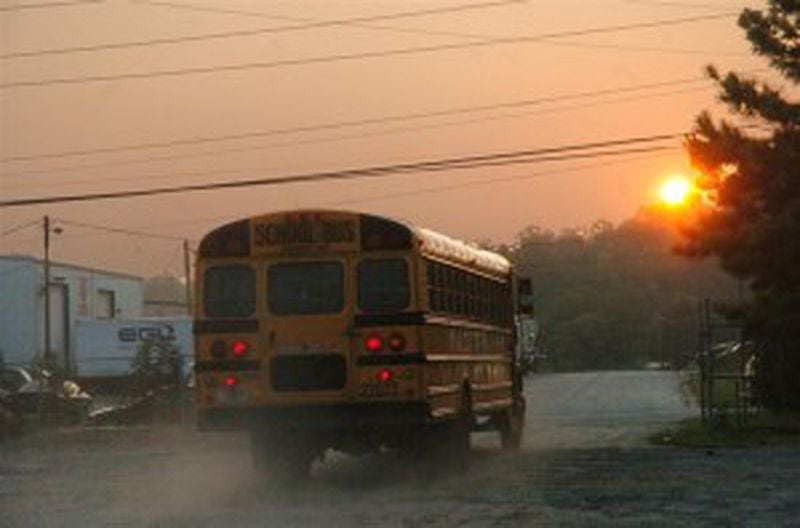Most parents of a teen can testify their child loves to sleep in the morning. And that affection often conflicts with early starting school schedules, which is why there's been a great deal of debate over the appropriate first bell for middle and high school.
That debate will be furthered by a report released today from the Centers for Disease Control and Prevention on how few schools are heeding the doctors' advice and the risks associated with teen sleep deprivation.
Credit: Maureen Downey
Credit: Maureen Downey
Research shows teens are biologically wired to stay up late and sleep in the mornings. Teens typically stay up until 10 p.m. or later, meaning they should sleep until at least 7 a.m.
Despite a recommendation from the American Academy of Pediatrics that middle and high schools start at 8:30 a.m. or later, only one in six U.S. public middle and high schools do so.
Why?
The CDC report cites several reasons: The costs associated with changing bus schedules; potential traffic congestion; difficulty in scheduling after-school activities, especially athletics; and lack of education in some communities about the importance of sleep and school start times.
Here is an excerpt from the report:
In a policy statement published in 2014, the American Academy of Pediatrics urged middle and high schools to modify start times as a means to enable students to get adequate sleep and improve their health, safety, academic performance, and quality of life. AAP recommended that "middle and high schools should aim for a starting time of no earlier than 8:30 a.m."
Among an estimated 39,700 public middle, high, and combined schools in the United States, the average start time was 8:03 a.m. Overall, only 17.7 percent of these public schools started school at 8:30 a.m. or later.
The percentage of schools with 8:30 a.m. or later start times varied greatly by state, ranging from 0 percent in Hawaii, Mississippi, and Wyoming to more than three quarters of schools in Alaska (76.8 percent) and North Dakota (78.5 percent). A school system start time policy of 8:30 a.m. or later provides teenage students the opportunity to achieve the 8.5–9.5 hours of sleep recommended by AAP and the 8–10 hours recommended by the National Sleep Foundation.
Parents can help their children practice good sleep hygiene (i.e., habits that help promote good sleep). A regular bedtime and rise time, including on weekends, is recommended for everyone, whether they are children, adolescents, or adults. In addition, adolescents with parent-set bedtimes usually get more sleep than those whose parents do not set bedtimes. Adolescents who are exposed to more light (such as room lighting or from electronics) in the evenings are less likely to get enough sleep. Technology use (e.g., computers, video gaming, or mobile phones) might also contribute to late bedtimes and parents might consider implementing a "media curfew" or removing these technologies from the bedroom. Finally, parents might benefit themselves and their children by setting a good example. Adolescent sleep habits tend to reflect their parents' sleep habits.
to The Atlanta Journal-Constitution’s
, a weekly email with top news about Georgia schools, colleges and universities.
Our education newsletter delivers news about metro Atlanta school districts and how decisions made in the Capitol affect students, families, and teachers around the state. And it includes the latest on Georgia’s colleges and universities, student debt and higher education spending.
.







